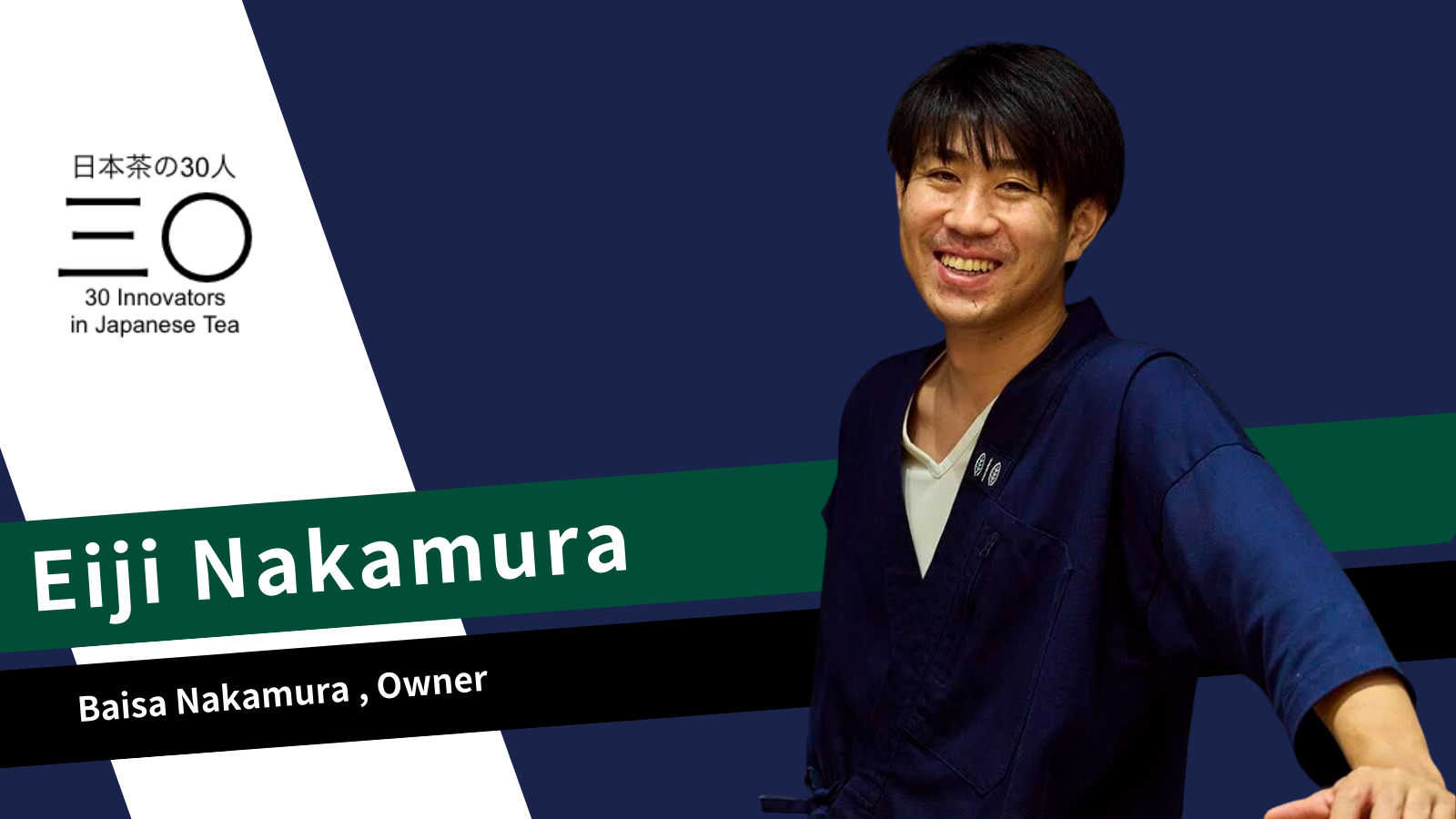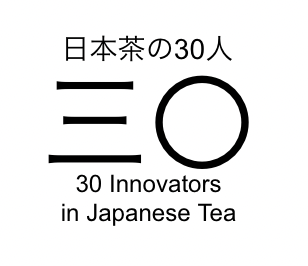Humans have been drinking tea for thousands of years. Up to now tea leaves have been dried and stored. In the past 50 years, freezing technology has developed and spread, and the global cold chain (low-temperature logistics) has become a reality. Foreign fresh meat can be found in supermarkets, and there is a refrigerator in every home. However, now as in the past, tea leaves are still commonly dried and stored.
Of course, there are several examples of using frozen tea leaves. For example, in the past 30 years, there has been a revival of hand-rolled tea preservation associations in various tea producing regions. One of the reasons for this is that frozen tea leaves are now readily available for practicing hand-rolling.
The company featured in this article, Baisa Nakamura, is taking the possibilities of frozen tea leaves to the next level. At Baisa Nakamura, freshly steamed tea leaves are collected from tea-producing regions throughout Japan and frozen for preservation. The frozen tea leaves are processed year-round at the shop where the tea is sold, and now shop visitors can smell the aroma of fresh tea, experience the tea making process, and make purchases year-round – something that was previously possible only in tea producing areas during the harvesting seasons.
In the world of Japanese tea, where previously only blended teas were available, single-origin teas are now becoming more and more popular. You can say that Baisa Nakamura is exploring value that lies further ahead.
The scent of fresh tea that could only be smelled at tea factories during the harvesting season. We spoke with Baisa Nakamura about their efforts to allow the enjoyment of this aroma all year round using freezing technology.
Eiji Nakamura
Eiji Nakamura was born in 1991 in Uji, Kyoto to a family of tea merchants. After graduating from university in Osaka, he worked for six and a half years at a tea farm – Nishi Seicha Koujou in Kirishima City, Kagoshima Prefecture, where he was involved in tea cultivation, processing, and sales. In October 2022, he opened a Japanese tea specialty shop Baisa Nakamura in Uji, Kyoto, which houses a tea factory with frozen tea leaves inside the cafe.
Contents
- 1 A one-of-a-kind shop where you can taste freshly processed tea.
- 2 My favorite expression is a Zen saying “Gahoujin” (我逢人) that means the preciousness of encounters. I want to work hard and cherish encounters with people.
- 3 Good products are always loved. What supports the tea industry is the belief in good products.
A one-of-a-kind shop where you can taste freshly processed tea.
Q: What kind of shop is Baisa Nakamura?
Nakamura: We are a tea specialty shop with a small tea factory and cafe located in Uji City, Kyoto Prefecture, about a 1-2 minute walk from Byodo-in Temple.
If we were to describe it in a few words, it is a place where you can watch sencha being made right in front of your eyes. For many people, this shop is unlike any other.
Sencha is made by steaming tender buds freshly picked from tea fields, then rolling and drying them. Until now, the only people who could taste freshly rolled tea were those working at tea factories.
In fact, when I first tasted fresh tea that had just come out of the drying machine, I was surprised at how different it was from the new tea that is commonly sold. It was refreshing and had a wild feel to it, and the tea leaves were smooth and warm. There, I discovered a world of tea that I did not know existed.
At Baisa Nakamura, you can enjoy freshly rolled tea, which used to be the privilege of those working in tea factories.
The fresh green tea available at Baisa Nakamura is completely different from the green tea generally available on the market. Freshly processed tea has a fresh taste that is rarely available even during the season when new tea is sold. Moreover, you can enjoy freshly processed tea at any time of the year. I would like to recommend everyone who is interested in authenticity and prefers high quality as well as delicious food to try this tea. I want this taste to be widely known, and that is why I have set up a tea-making facility inside the cafe.
Another attraction of Baisa Nakamura is that you can see the behind-the-scenes of tea production, which you would not normally get to see, right in front of you. We are proud to be the one-of-a-kind shop where you can learn about the aroma and sound of new tea leaves, about who is making the tea, how it is made, and why it tastes the way it does.
Customers who touch the tea leaves during the tea-making process say, “I did not know freshly made tea was so warm!” or “I am surprised at how moist the tea leaves are”.
Q: Baisa Nakamura is attracting attention from within the industry because you handle frozen tea leaves, which is considered to be technically extremely difficult, isn’t it?
Nakamura: Thank you very much. Some people say, “We tried it too, but we failed. This is amazing!”
I also went through a lot of trial and error until I arrived at the current style, and it was really difficult. After all, if you do not freeze the tea leaves properly, they will inevitably go bad. After trying various things, I realized that I could freeze the amount needed for hand-rolling, and that a small-batch tea machine would work well, which was my breakthrough.
At Baisa Nakamura tea leaves picked in May are immediately steamed, flash-frozen and stored. Then only the needed amount is defrosted and dried while being heated during rolling.
Q: What is the mission of Baisa Nakamura?
Nakamura: We have two. The first one is to make Japanese tea more accessible.
The second is to increase the consumption of Japanese tea by making people aware of the tea appeal.
If people can see the process of tea making, they will feel that even bottled tea tastes better and is something to be appreciated. At Baisa Nakamura, we hope to make Japanese tea more accessible to visitors by allowing them to experience this process year-round.
Q: Are there any competitors or companies that you use as a benchmark?
Nakamura: Not at the moment. But I have heard that tea machine makers have received several inquiries from domestic and international customers asking them to teach Baisa Nakamura methods.
I think the tea industry will become even more interesting as the number of rivals increases and the number of shops like ours that offer freshly made Japanese tea grows. It would also benefit the manufacturers and Japanese tea farmers.
Q: What kind of challenges will Baicha Nakamura take on in the future?
Nakamura: We would be happy if more people became aware of the Baisa Nakamura style and added the option of freshly processed tea when choosing what to drink. While people have already started seeing the value in drinking freshly processed tea, in future I would like more people to experience how interesting tea processing is.
Also, the small 2kg machines, which were custom made for Baisa Nakamura, can be used to make tea so beautifully that it is comparable to hand-rolling. It would be interesting to lend these tea-processing machines to tea farmers who participate in tea competitions and have them try making tea.
Q: What does Japanese tea mean to you?
Nakamura: I think it is life itself. My family has been making a living from tea for generations, and if it goes well, I will lead the same life.
I also feel that tea is a source of diversity. Tea is not only drunk as tea, but it can also be used as medicine. Tea leaves from the same plant can be turned into oolong or black tea, they can be frozen. Tea is loved as a sweet. In some periods and regions it has been a means of showing political authority. And there are even people who eat tea leaves as they are. Tea is loved in so many ways. There are probably not many agricultural products that are so widely loved and adapted to each place and occasion.
Q: What are the difficulties of working with Japanese tea?
Nakamura: Tea has a lot of appeal, but I find it difficult to convey it. I just hope that we can successfully communicate the appeal of tea and stimulate consumers’ desire to purchase it.
Q: Who comes to mind when you think of people who are doing interesting things in the tea industry?
Nakamura: There are many! If I had to choose just one person, it would be Genki Takahashi from Tea Factory Gen.
Takahashi-san was not born into a tea farming family, but he was fascinated by tea and went to study it, approached tea farmers directly to ask them to lend him their tea fields, and even flew to China to learn about Chinese tea. I respect his inquisitiveness about tea.
My favorite expression is a Zen saying “Gahoujin” (我逢人) that means the preciousness of encounters. I want to work hard and cherish encounters with people.
Q: What is your motto or words that you hold dear?
Nakamura: It is “Gahojin” (我逢人). This is a phrase left by Dogen, a Soto Zen master, to his disciples, expressing the preciousness of encounters.
I myself feel that encounters with others have broadened my perspective and expanded my life. That is how precious encounters with people are.
There is only so much one person can do, and I feel that I am able to do my work now thanks to encounters with many different people. I will continue to value encounters with people, and with the help of various people, I will devote myself to my work.
Good products are always loved. What supports the tea industry is the belief in good products.
Q: What do you think will happen to the tea industry in the future?
Nakamura: Even if tea consumption decreases, the good stuff will still remain. On the other hand, I think that those that are half-hearted will be weeded out.
Globally, China is producing matcha at a tremendous rate, and some of it is even higher in quality than that produced in Japan. If the share of Chinese matcha increases, even with the brand of domestically produced tea, only farmers who can produce truly good products and wholesalers who can purchase them will be able to survive. I expect that the share of such farmers and wholesalers will keep increasing.
In turn each tea will have individuality. There is no single form of good products. Products with individuality that can only be offered by that farmer or that wholesaler will attract attention and be in the spotlight.
In the future, I believe that, although this is not limited to the tea industry, we will need to create products that are based on our beliefs and that express our self in a positive sense.
Of course it is important to create what sells now, but if the tea industry as a whole could create something that has never existed before, I think everyone would be more excited. Tea is a diverse product, and I believe there is a potential to create many new things. I think that is what will sell in the future.


